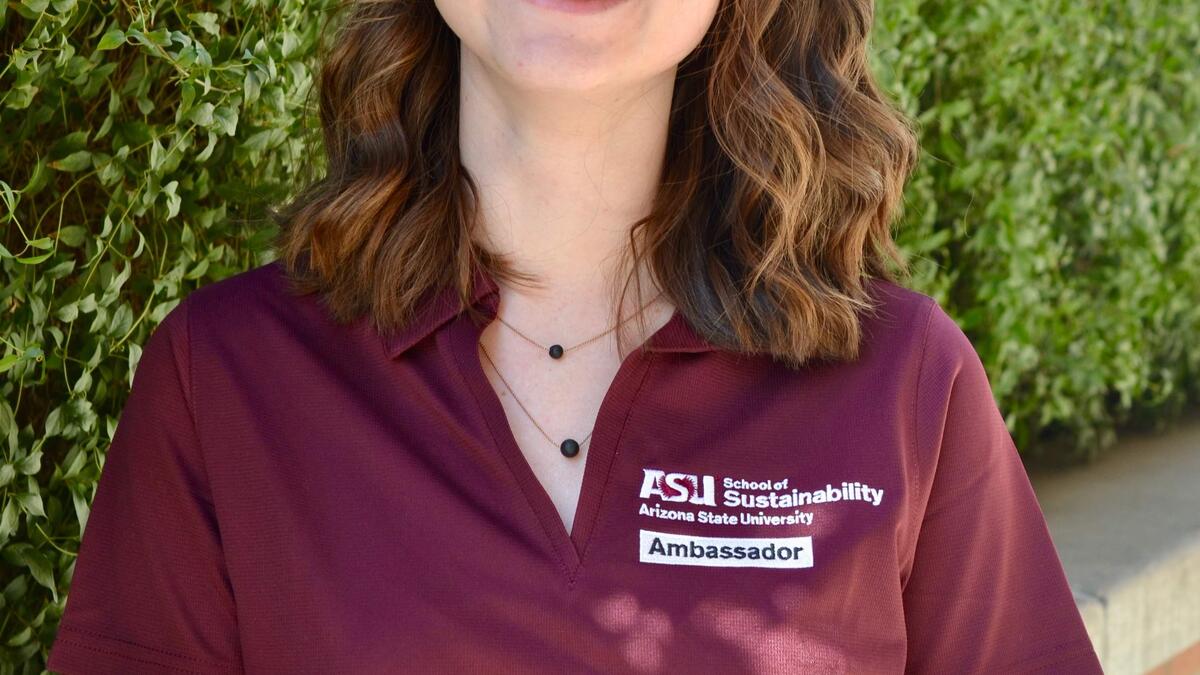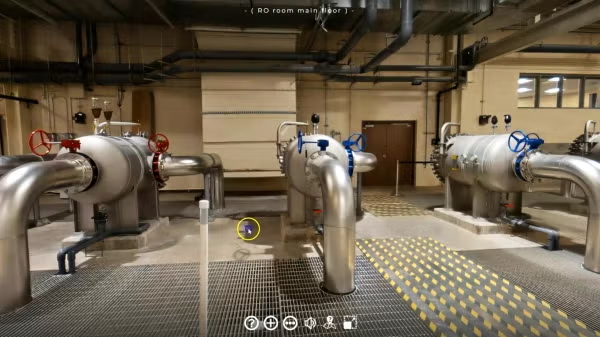Utilizing a love of nature to overcome sustainability challenges

Andie Wilkerson.
Editor's note: This story is part of a series of profiles of notable spring 2021 graduates.
A love of the outdoors is something that runs in Andie Wilkerson’s family. Her parents met while hiking the Grand Canyon. Summer vacations often include trips to national parks. That connection to nature and the environment is part of what drew her to sustainability.
“I was always the one that would tell my parents about recycling and other ways we can lessen our individual impact,” said Wilkerson. “I was engaged with news about climate change and the environment.”
Wilkerson knew she wanted to do something that would help people, but a career in sustainability wasn't always her dream.
“When I was really little, the only thing I wanted to be was a waitress. But then I tripped and fell when pretending to bring drinks to my parents and cut my chin open, so that was the end of waitressing for me. After that, I looked into going into the military and doing medical school to become a military doctor. And then, for a little bit, I thought about getting into politics because that was how I could help people.”
When Wilkerson learned about the Bachelor of Science in sustainability degree at the School of Sustainability in the College of Global Futures, she found a program where she could help people through her research. In the ecosystems sustainability track, she is exploring different ways to make change and the impact it can have.
“The sustainable ecosystems track focuses on looking at a whole-scale system, and how when you make a change to a certain part, it could have cascading effects throughout the whole system. We've done predator-prey models where you see how bringing in an invasive species can impact other species, and how any action made in the environment has an impact somewhere else, even if we don't see it happening. It's like a puzzle to figure out. If we do X, Y or Z here, how is the ecosystem around us going to be impacted?”
Sustainable purchasing has also been a significant part of Wilkerson’s research. Her work with the Sustainable Purchasing Research Initiative, analyzing green purchasing implementation and success in Italian municipalities, earned her the Sustainability Undergraduate Research Experience Student of the Year award. Outside her research, Wilkerson has made the most of her time at the School of Sustainability. She is president of the Honor Society for Sustainability, a School of Sustainability Academy member, a mentor in Sustainabilibuddies and an ambassador for the school.
“These organizations provided the opportunity to learn and grow outside of the classroom. It’s also a way to give back to the community that's become like family to me. I have loved the School of Sustainability, and these groups are a way to share that and bring more people to the school.”
Wilkerson hopes to one day become a sustainability consultant where she can help companies overcome sustainability challenges. She is working on getting experience in different aspects of sustainability to become a more effective consultant and recently accepted a solar data analyst position with Momentum Solar. She is grateful to the School of Sustainability for helping her make connections and setting her up for success.
“There’s a sense of community within the school, which allowed me to form friendships, and there are so many opportunities for learning outside of the classroom. It’s been an amazing experience, and I’ve been able to explore the different avenues of how I can help the world.”
Question: Which professor taught you the most important lesson while at ASU?
Answer: Presidential Professor of Practice Rob Melnick has been one of the most influential professors in my time at ASU and has become an amazing mentor to me. In his class, I learned how to concisely say what I want to do with my life and how I want to help people. He introduced us to so many different people and ideas. His class was my first introduction to SPRI and Nicole Darnall, who has also become such a fantastic mentor. The class Neda Movahed taught was also great. She was a PhD student and graduated, so she’s no longer at the School of Sustainability, but her class on sustainable development was eye-opening. I learned about all the different lenses that people have when they look at the world. Even the words that we use are so impactful when it comes to how we're perceiving the world and the ideas that we're bringing forward. For example, using the words developed or developing for countries puts a negative lens on the developing countries and makes it seem like the developed ones have no room to grow. The class was really great to understand perspectives.
Q: What’s something you learned while at ASU — in the classroom or otherwise — that surprised you or changed your perspective?
A: One thing that surprised me was that one of my hardest classes was ceramic wheel throwing. I like to take an art class every semester and was expecting this class to be fun and easy. But it takes so much muscle energy to do it, and it was frustrating because you can’t throw it perfectly the first time and have to start from scratch all over again. The class taught me that even if things aren't easy, you have to keep working at it and eventually, it will come, even if it's not perfect.
Q: What’s the best piece of advice you’d give to those still in school?
A: If there's something you find interesting, go for it. Submit the application. Reach out to someone. If professors have interesting research, see if they would even just talk to you about it, and maybe that will open the door to working with them. Doing whatever you can to be a part of the things that drive you and you are passionate about will make your four years even better.
Q: If someone gave you $40 million to solve one problem on our planet, what would you tackle?
A: I would work on getting everyone access to clean water. To me, water is so rejuvenating, especially growing up in the desert. It's just such an important part of life, and it's crazy that so many people don't have easy access to it.
More Environment and sustainability

2 ASU faculty elected as AAAS Fellows
Two outstanding Arizona State University faculty spanning the physical sciences, psychological sciences and science policy have…

Homes for songbirds: Protecting Lucy’s warblers in the urban desert
Each spring, tiny Lucy’s warblers, with their soft gray plumage and rusty crown, return to the Arizona desert, flitting through…

Public education project brings new water recycling process to life
A new virtual reality project developed by an interdisciplinary team at Arizona State University has earned the 2025…

